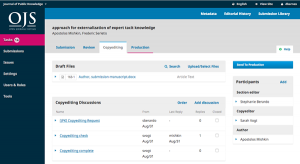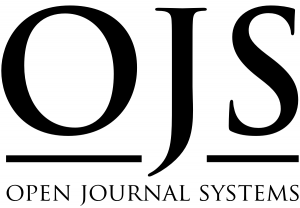Open Journal Systems from the hosting experts
Open Journal Systems (OJS) is a journal management and publishing system that has been developed by the Public Knowledge Project.
Hosting Plans


OJS assists with every stage of the refereed publishing process, from submissions through to online publication and indexing. Through its management systems, its finely grained indexing of research, and the context it provides for research, OJS seeks to improve both the scholarly and public quality of refereed research. It’s used by over 24,000 journals worldwide (although as registration is optional, the actual number is likely to be much higher)
Our hosting experts will install & setup Open Journal Systems to get you started, completely free of charge.
More Features:
- OJS is installed locally and locally controlled.
- Editors configure requirements, sections, review process, etc.
- Online submission and management of all content.
- Subscription module with delayed open access options.
- Comprehensive indexing of content part of global system.
- Reading Tools for content, based on field and editors’ choice.
- Email notification and commenting ability for readers.
- Complete context-sensitive online Help support.
Features of the new OJS 3 release
OJS 3 consists of 4 editorial stages:

- Submission, where new submissions are dealt with (rejected, assigned to section editors, etc.);
- Review, where peer review and author revisions take place;
- Copyediting, where the reviewed and revised files are sent for copyediting;
- Production, where the final, copyedited version is converted into publishable formats (PDF, HTML, etc.), proofread, and scheduled for publication.
To increase editorial flexibility, you can easily move a submission from one stage to another without completing any of the possible tasks on that stage. You don’t do copyediting? No problem, just skip it with the Send to Production button.
Editorial Discussions
To help track the communications that are a critical part of a submission’s workflow, OJS 3 has a new internal discussion feature for each editorial stage (Submission, Review, Copyediting, Production). Discussions work much like an online forum — a user creates a discussion topic, invites others to participate, and sends a message (including with attachments).
Anyone involved with the submission can be included in a discussion (the editor, section editors, authors, copyeditors, etc.). Recipients receive an email notification to inform them of the new message. Replies happen just like in a blog comment or forum post.
Responsive Design
Lack of responsiveness (the ability of the journal’s web page to adjust to the reader’s screen size — from a phone, to tablet, to desktop computer) was a major issue for OJS 2. The OJS 3 reader interface is fully responsive.
Simpler Registration
To ease registration for new users, we’ve prioritized a small set of required fields on a single screen (e.g., name, affiliation, email, etc.), and allow the registration to proceed once those few are completed.

